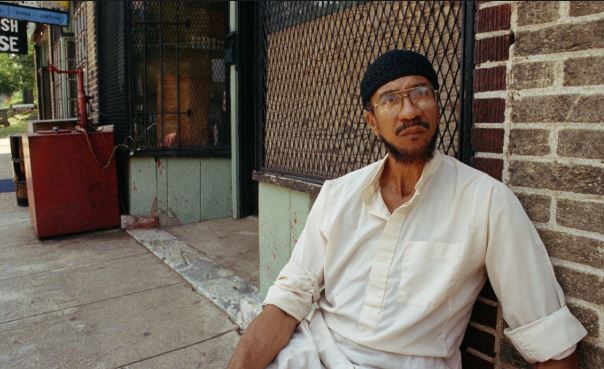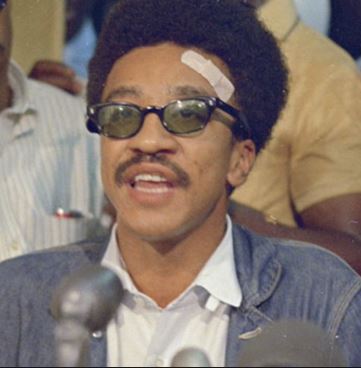
Court rules against militant formerly known as H. Rap Brown
ATLANTA (AP) — A prosecutor violated the constitutional rights of the 1960s black militant formerly known as H. Rap Brown during his trial for the killing of a sheriff’s deputy, but it’s unlikely that substantially affected the verdict, a federal appeals court found.
The finding came Wednesday in the case of the man now known as Jamil Abdullah Al-Amin, who gained prominence more than 50 years ago as a Black Panthers leader who famously said, “Violence is as American as cherry pie.” He later converted to Islam, changed his name and was living in Atlanta as an imam in March 2000 when authorities say he shot two sheriff’s deputies, killing one.
Al-Amin alleges that a prosecutor at his trial violated his constitutional rights and the court failed to take adequate steps to fix that violation. A federal judge rejected his challenge and the 11th U.S. Circuit Court of Appeals affirmed that ruling.
In 2002, Al-Amin, 75, was convicted of murdering Fulton County sheriff’s Deputy Ricky Kinchen and wounding Kinchen’s partner, Deputy Aldranon English. He was sentenced to life in prison.
Al-Amin’s lawyers argued a prosecutor violated his right not to testify by directly questioning him during closing arguments in a sort of mock cross-examination. They also said the trial judge should have let his lawyers question an FBI agent who was present at his arrest about another incident involving the agent.

As a radical activist in the 1960s, Al-Amin was a leader in the Student Nonviolent Coordinating Committee. He called violence a necessary tool for blacks.
During a five-year sentence for his role in a robbery that ended in a shootout with New York police, he converted to the Dar-ul Islam movement and changed his name.
He moved to Atlanta in the 1970s and became the leader of one of the nation’s largest black Muslim groups, the National Ummah.
Authorities say Al-Amin shot Kinchen and English on March 16, 2000, when they went to the Atlanta neighborhood where Al-Amin lived, was an imam and owned a grocery store to serve a warrant for failure to appear in court on charges of driving a stolen car and impersonating a police officer during a traffic stop the previous year.
He was arrested four days later in White Hall, Alabama, a small town where he had helped develop a Muslim community.
During closing arguments at his trial, the prosecutor displayed a chart titled “Questions for the defendant” and asked “pointed questions” meant to focus the jury’s attention on the fact that Al-Amin didn’t testify, his lawyers argue.
The defense objected, and the trial judge gave the jury instructions meant to neutralize any harm caused by the prosecutor’s statements.
U.S. District Court Judge Amy Totenberg found in September 2017 that the prosecutor violated Al-Amin’s constitutional right not to testify and that the trial court’s attempt to mitigate the prosecutor’s violation was insufficient and may have actually been harmful.
But she found there was “weighty” evidence against him, and she rejected his challenge to his imprisonment. Totenberg added that she was constrained by the “onerous standards” imposed by the law and Supreme Court case law.
A three-judge panel of the 11th Circuit agreed with Totenberg’s findings that the prosecutor committed a substantial constitutional error and that the court’s attempt to lessen the harm was ineffective.
But the panel also agreed it’s unlikely that that substantially affected the jury’s verdict.
“We regret that we cannot provide Mr. Al-Amin relief in the face of the prosecutorial misconduct that occurred at his trial. A prosecutor’s duty in a criminal proceeding is not to secure a conviction by any means, but to ensure that justice will prevail,” Circuit Judge Charles Wilson wrote in the opinion. “The prosecutor at Al-Amin’s trial failed to live up to that duty.”
The panel also agreed with Totenberg that the trial court acted within its rights in refusing to let Al-Amin’s attorneys cross examine an FBI agent about an incident earlier in his career because he had been investigated and cleared in that incident.







